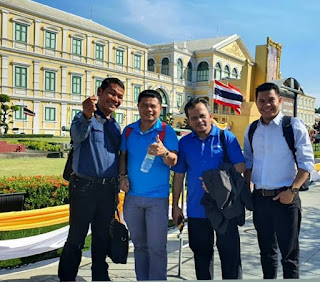In a matter of three years, the Social Ethics Society has gone international. Recently, Fr. Dexter Veloso (St. Francis Xavier College Seminary), Dr. Christopher Ryan Maboloc (Ateneo de Davao University), Dr. Rogelio Bayod (Cor Jesu College), and Mr. Aldrin Quintero (Notre Dame of Marbel University) have successfully delivered lectures and/or presented papers at the Cross-Cultural Bioethics and Consensus Building Conference in Bangkok, Thailand. The event was held at Chulalongkorn University last November 28-30, 2019. Early this year, Dr. Maboloc and Dr. Bayod also presented important papers during the Human Gene Editing Summit at Chulalongkorn University.
In 2017, Dr. Maboloc and Fr. Veloso attended the Conference on Philosophy and Practice of Bioethics Across and between Cultures at Kumamoto University in Japan. Dr. Maboloc delivered a paper on social justice and disability rights. In 2018, Dr. Maboloc and Dr. Bayod attended the seminal International Conference-Workshop on Philippine Politics and Culture: Mindanao Perspectives at Nagoya University in Japan upon the invitation of Dr. Wataru Kusaka, author of Moral Politics in the Philippines. Dr. Bayod presented his paper on the struggle of Indigenous Peoples in the Philippines whereas Dr. Maboloc presented his research on radical democracy in the Philippines.
"Part of this internationalization process is to bring global scholars to Mindanao," according to Dr. Maboloc, the founding president of the SES. Dr. Daniel Mishori of Tel Aviv University was keynote speaker during the 9th SES Conference. Meanwhile, Dr. Kusaka of Nagoya University was keynote speaker at the 2nd Philippine Politics and Culture Conference at Cor Jesu College. Next year, the philosopher John Weckert of Charles Sturt University will be the keynote speaker for the 10th SES Conference while Dr. Juichiro Tanabe of Kumamoto University will speak in the plenary. "We need to show that Mindanao scholars are at par with others in various fields of expertise. But more than that, the task at hand is to develop the capacities of our young and promising scholars here," Dr. Maboloc said in closing.
